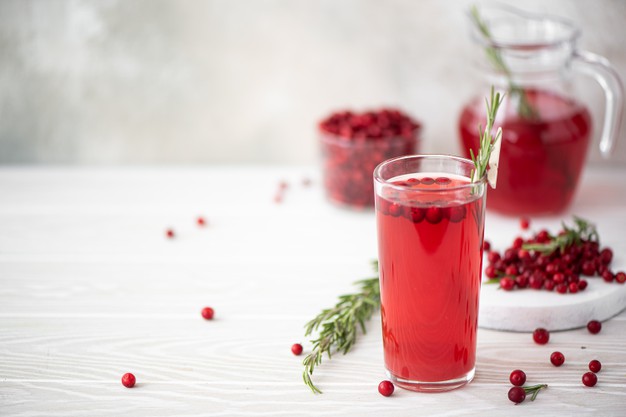A look at the positive effects on hypertension and vascular function from Lingonberry Juice with reference to experimental studies, by Anne Kivimäki, University of Helsinki
Lingonberries are beautiful red berries growing in the Nordic forest. Their fresh, astringent and bitter taste might give you some facial contortion. Actually, one genetic variant (TAS2R38) regulates the perception of bitterness in berries. Regardless of strong taste, it is worth of consuming – lingonberries seem to have beneficial effects on health!
Cardiovascular diseases and diet
Cardiovascular diseases are major cause of death in all over the world. Vascular function is impaired in common situations such as hypertension, smoking, hyperlipidemia and diabetes. When blood vessels lose their ability to dilate and constrict normally, there is no space for the blood pumped by the heart and blood pressure increases. As many other diseases, this ‘vascular dysfunction’ is related to low-grade inflammation. Hypertension is cause of disturbances in endogenous systems and unbalanced body homeostasis.
In the prevention of cardiovascular diseases, lifestyle and healthy diet are important aspects. Treatment of cardiovascular diseases includes lifestyle guidance and appropriate diet in addition to medication. Foods such as berries, fruits, tea and cocoa has been claimed to exert positive effects on cardiovascular health. This positive effect may arise from polyphenols which are secondary metabolites of the plants. About 8000 different polyphenols have been identified and half of them belong to a group classified as flavonoids. Polyphenolic content has seasonal and growth place variability. For example, amount of one type of flavonoid, anthocyanin, is highest in low temperatures.
Wild berries, e.g. lingonberry (Vaccinium vitis-idaea), bilberry (Vaccinium myrtillus), cranberry (Vaccinium oxycoccos, V. microcarpum) and cultivated blackcurrant (Ribes nigrum) are excellent sources of polyphenols.
What we studied
In our studies conducted in the Department of Pharmacology in University of Helsinki we wanted to investigate the effects of cranberry, lingonberry and blackcurrant juices on vascular function and blood pressure in experimental model of hypertension.
At first, vascular function was studied after 8 weeks consumption of cold-compressed cranberry, lingonberry and blackcurrant juices. Interestingly, in lingonberry treated group vascular dysfunction was totally abolished. Thus, we decided to continue to further studies with lingonberry juice. We wanted to clarify how lingonberry juice affects increased blood pressure in spontaneously hypertensive rats and what are the effects in normotensive rats consuming high-salt diet. High salt intake is one risk of the factors of hypertension. Low-grade inflammation was studied, as it is related to hypertension and vascular dysfunction.
What we found
We found that lingonberries have potential. The established high blood pressure of spontaneously hypertensive rats became lowered during an eight-week treatment with lingonberry juice. However, more concentrated lingonberry juice was unable to prevent the strong genetic development of hypertension in young rats. Yet, more concentrated lingonberry juice was able to normalize vascular function of mesenteric arteries in this experimental model. So it looks like lingonberry juice has the ability to enhance vascular function in this experimental model, but the perfect dose still needs to be established.
Lingonberry juice also affected positively on inflammatory markers in these experimental models. After lingonberry juice treatment, serum levels of both angiotensin II and alkaline phosphatase were lower than in the control groups. These are important markers for monitoring inflammation and incidence of cardiovascular diseases. Reduced gene expression of cyclooxygenase 2, monocyte chemoattractant protein 1, p-selectin and vascular cell adhesion molecule 1 partly indicates possible anti-inflammatory and anti-thrombotic effects of the lingonberry juice.
Possible mechanisms behind these positive effects on hypertension and vascular function may be the inhibition of renin-angiotensin system together with enhanced nitric oxide production. These processes are also targets of antihypertensive drugs.
Conclusions
Taken together, a long-term treatment with lingonberry juice lowered blood pressure and improved vascular function in an experimental model of hypertension. The possible mechanisms of these positive cardiovascular effects are related to important body homeostasis regulator, renin-angiotensin system and enhanced nitric oxide bioavailability. Furthermore, lingonberry possesses anti-inflammatory properties, which may well contribute to its beneficial health effects.
In addition to fibres and minerals lingonberries contain moderate, but not high amounts of vitamins like C, A, some B-group vitamins. Vitamin E concentration is fairly good, 1.5 mg/100g. The real power of the lingonberries are phenolic compounds, flavonols, anthocyanins, proanthocyanins, quercetin and stilbenes to name a few. Interestingly, lingonberries contains high amounts of resveratrol, which is usually associated with grapes and red wines.
There is a lack of clinical studies conducted with lingonberries or lingonberry products. Results from these experimental studies cannot be directly extrapolated to humans. Clinical evidence is essential in order to give any claims of the health benefits. However, it has been shown, that moderate reduction of blood pressure and enhanced vascular function is possible to achieve with polyphenol-rich foods.
Lingonberries really have the potential for a superfruit!
References:
Kivimäki A. Lingonberry juice, blood pressure, vascular function and inflammatory markers in experimental hypertension. http://urn.fi/URN:ISBN:978-951-51-5631-0



